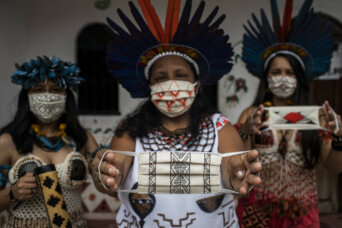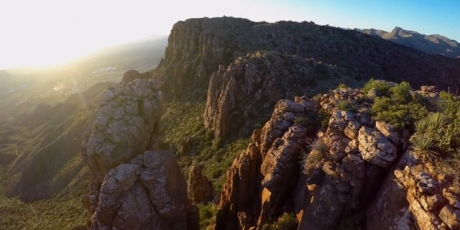- About
- Topics
- Picks
- Audio
- Story
- In-Depth
- Opinion
- News
- Donate
- Signup for our newsletterOur Editors' Best Picks.Send
Read, Debate: Engage.
| topic: | Human Rights |
|---|---|
| located: | Brazil, Venezuela |
| editor: | Ellen Nemitz |
The World Day for Cultural Diversity for Dialogue and Development, celebrated on 21 May, is a reminder of the importance of respecting the differences between people and countries. Shaped by a process of colonisation and ethnic mixing, Latin America keeps witnessing discrimination and violence against “minorities" - a problematic term that shows how society is still based on patriarchalism and racism, seeing as women, LGBTI people, indigenous groups and people with disabilities and many other demographics remain in the shadows.
Migration waves, which have accelerated recently, make the diversity of cultures in Latin America more evident. However, at the same time that it contributes to the empowerment of a community, cultural diversity continues to be neglected and, often, violated.
The United Nations also highlights the impact of Covid-19 on culture around the world, which contributes to an increased risk to cultural and heritage sites and events. "This impact is social, economic and political - it affects the fundamental right of access to culture, the social rights of artists and creative professionals, and the protection of a diversity of cultural expressions,” says the institution.
In this sense, the internet may work as an important ally to preserve culture. This is the aim of the project #ShareOurHeritage of the United Nations Educational, Scientific and Cultural Organization (UNESCO), which is promoting online exhibitions of the World Heritage sites around the globe. Latin America makes part of this initiative: anyone can visit important historic spots, architecture symbols and natural landscapes of the region without leaving the house.
In Brazil, the project Àwúre tries to eliminate the trend of "discrimination, intolerance, violence and racism” that vulnerable people face. A partnership between several institutions - Public Prosecurtor’s Office, International Labour Organization and UNICEF - the project receives complaints, spreads the news and empowers traditional communities such as indigenous, (quilombolas and ribeirinhos) as well as peripheral neighborhood residents.
Àwúre acts in various ways, including a Covid-19 response. In the northern region, for example, they support the artisan hand-made products that support communities’ livelihood. This is the case of Venezuelan Warao people, who came to live in Brazil fleeing the crisis in their home country and received aid from Àwúre to continue an activity taught from generation to generation - a symbol of that people.
Àwúre also supports the practitioners of African-based religions. According to the project, the human rights violation channel available by phone in Brazil registered an increase of 41.2 percent in calls regarding religious-based intolerance in the first semester of 2020 compared to the same period in 2019. Education and open debate are some of the ways through which society can overcome this situation, they assess.
Latin America was formed by uncountable indigenous peoples, Africans from different regions, Europeans from a wide range of countries, Asians and many other people. Traveling from the extreme south in Argentina and Chile to Central America and Mexico is not possible without noticing the differences in languages, accents, foods, ways of living, ethnicities, traditions and religions. It hosts historic and archeological sites, architecture and landscapes of extreme richness. Latin America is not all the same. Each country is unique and preserving cultural diversity is vital for the region’s thriving.
Image: International Monetary Fund.

